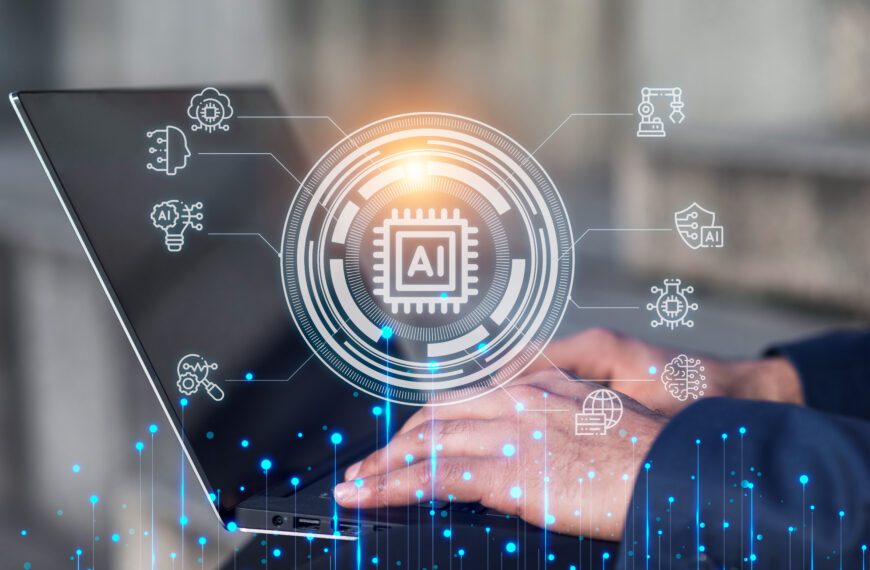Revolutionizing the Indian Legal System: The Power of Artificial Intelligence (AI)

How Artificial intelligence (AI) impact legal system in India
Artificial intelligence (AI) has emerged as a disruptive force in a variety of fields, with far-reaching implications for Indian legal system. The use of AI technology in legal processes has the potential to transform how lawyers do research, analyse data, handle cases, and make judgements. This introduction provides an insightful overview of the impact of artificial intelligence (AI) on the Indian legal system, shedding light on key areas where AI is revolutionizing operations and introducing new challenges.
Advancements in natural language processing and machine learning algorithms have greatly enhanced document analysis, contract management, and predictive analytics, leading to a reduction in reliance on manual labor, mitigating human error, and minimizing bias. However, despite these advancements, concerns persist regarding the ethical and legal implications of AI adoption in the legal domain, particularly given that ultimate judgments still rest with human decision-makers.
Over time, the Indian legal system has undergone numerous transformations, propelled by various amendments and landmark rulings, reflecting the dynamic nature of legal evolution within the nation. Yet, with the advent of the digital age, artificial intelligence (AI) has started to exert its influence on the legal profession. AI technologies such as predictive analytics and machine learning algorithms have already begun to change the way legal services are delivered. These advancements are poised to revolutionize the Indian legal system, enhancing efficiency and accuracy in operations.

Challenges in the Indian Legal System:
- Backlog of Cases: One of the most serious issues in the Indian legal system is the backlog of cases. Courts at all levels, from subordinate courts to the Supreme Court, have a huge number of ongoing cases. This backlog causes delays in the administration of justice, prolongs judicial procedures, and weakens public faith in the court.
- Lengthy Legal Procedures: Legal Procedures in India are sometimes lengthy and complex, adding to delays in dispute resolution. Court processes, including evidence collecting, hearings, and appeals, can take years to complete, resulting in longer litigation and higher expenses for litigants.
- Under-Resourced Judiciary: The Indian judiciary confronts issues such as poor facilities, manpower shortages, and restricted resources. Overburdened courts struggle to manage the amounts of cases, resulting in delays and inefficiencies in the legal process.
- Access to Justice: Despite constitutional guarantees of access to justice, many people in India suffer difficulties in obtaining legal remedies. Geographic limitations, financial limits, a lack of legal expertise, and language hurdles all contribute to uneven access to justice, especially among marginalized and economically poor people.
- Laws and Procedures: The Indian legal system is made up of a large and complex corpus of laws, statutes, and regulations at the federal, state, and municipal levels. The complexities of legal laws and procedures can be overwhelming for laypeople and even legal specialists, resulting in misunderstandings and inefficiencies in legal proceedings.

Role of AI in Clearing Backlog:
- Case Management: AI-powered case management systems can assist organize and prioritize cases based on a variety of criteria, including case type, urgency, and court workload. These technologies can automate administrative activities like hearing scheduling and document management, saving court workers time and effort.
- Legal Research: AI algorithms can analyze massive volumes of legal data, such as case law, legislation, and legal precedents, to deliver useful information and insights to judges and attorneys. This can considerably speed up legal research, allowing matters to be resolved more quickly.
- Predictive Analytics: AI can use past case data to anticipate case outcomes and estimate the time necessary for resolution. This can help courts distribute resources more efficiently and prioritize cases that are more likely to cause significant delays.
- Automated Document Evaluation: Artificial intelligence-powered technologies may automatically evaluate legal documents such as contracts, briefs, and pleadings to find pertinent material, discrepancies, and mistakes. This can save attorneys and judges a significant amount of time, particularly in situations with voluminous paperwork.
- Virtual Courtrooms: AI technologies like video conferencing, natural language processing (NLP), and virtual reality (VR) can permit distant hearings. This lowers the need for actual presence in courtrooms, saving time and resources for both the judges and the litigants.
- Case Prioritisation: Artificial intelligence systems may analyze case data and prioritize cases based on characteristics such as age, complexity, and urgency. By identifying cases that require immediate attention, courts may guarantee that limited resources are used effectively to reduce the backlog.
- Online Dispute Resolution (ODR): AI-powered ODR systems can help resolve conflicts outside of the traditional court system via online mediation and arbitration. By providing an alternate dispute resolution process, ODR can serve to relieve the load on regular courts and lessen the backlog.
- Language Translation: In a varied country like India, where several languages are spoken, AI-powered language translation solutions can help parties communicate more effectively and allow the judiciary to handle cases in different languages faster.
Virtual Courtrooms and Online Dispute Resolution (ODR):
Virtual courtrooms and Online Dispute Resolution (ODR) have emerged as disruptive alternatives in India’s legal scene, especially in light of the COVID-19 epidemic. Virtual courtrooms, leveraging AI technologies such as video conferencing, natural language processing (NLP), and virtual reality (VR), facilitate remote hearings and proceedings. Beyond ensuring the continuity of legal processes during crises, they enhance accessibility for litigants and legal experts, minimizing the need for physical courtroom appearances. Additionally, AI-driven Online Dispute Resolution (ODR) systems offer a convenient and cost-effective alternative to traditional litigation, enabling parties to resolve disputes online through mediation, arbitration, or negotiation. These platforms feature user-friendly interfaces, automated case management, and secure communication channels, expediting conflict resolution while alleviating the strain on overwhelmed court systems. Moreover, Online Dispute Resolution (ODR) fosters flexibility and confidentiality in resolving disputes, offering individuals and corporations a swift and accessible avenue for seeking redress. This contributes significantly to the broader goal of enhancing access to justice in India.
Addressing Legal Language Barriers:
Addressing Legal Language Barriers: In a linguistically diverse country like India, where legal proceedings are conducted in multiple languages, AI-powered language translation tools play a crucial role in bridging communication gaps between parties. These tools utilize natural language processing (NLP) algorithms to accurately translate legal documents, court proceedings, and interactions between individuals who speak different languages.
By offering real-time translation services, AI solutions ensure effective participation in legal proceedings for all parties, regardless of their native language. This fosters inclusivity within the legal system and extends access to justice, particularly for individuals encountering language barriers. Additionally, AI-powered language translation tools enhance efficiency by accelerating the processing of multilingual documents and diminishing reliance on manual translation services. This streamlines legal processes and bolsters the efficacy of the Indian legal system, promoting diversity within the judiciary and facilitating access to justice for those confronting linguistic hurdles. Moreover, AI-driven language translation solutions enhance efficiency by expediting the processing of multilingual documents and eliminating the necessity for manual translation services. This improvement streamlines legal procedures, thereby enhancing the overall efficacy of the Indian legal system.
Ethical and Regulatory Considerations:
Incorporating artificial intelligence (AI) into the Indian legal system presents ethical and regulatory challenges that demand careful consideration to uphold fairness and equity. Precise policies governing data collection, storage, and usage within AI systems are imperative to safeguard individual privacy rights and prevent unauthorized access to sensitive information. Transparency and accountability measures must also be instituted to ensure that AI algorithms remain fair, impartial, and free from bias, especially in decision-making processes impacting people’s rights and freedoms.
Furthermore, there’s growing concern that AI technology could perpetuate or exacerbate existing prejudices in the judicial system, such as racial, gender, or socioeconomic inequality. Therefore, proactive steps are necessary to mitigate these risks and promote a legal framework that prioritizes justice and equality for all. To reduce this risk, it is critical to establish mechanisms to detect and correct bias in AI algorithms, such as frequent audits, diversified training data sets, and continuous performance monitoring.
Moreover, ethical considerations in AI usage for judicial procedures necessitate ensuring human oversight, especially in complex cases where automated decision-making may be inadequate. Furthermore, protections should be included to prevent AI-driven fraud or manipulation, such as assuring the validity and integrity of evidence provided through AI-generated material.
A comprehensive regulatory framework is essential to ensure the ethical and responsible integration of AI in the legal system, balancing technological advancements with core principles of justice, transparency, and accountability. This framework should bring together policymakers, legal experts, technologists, and other stakeholders to develop standards, guidelines, and best practices that promote ethical AI use while protecting individual rights and ensuring the integrity of Indian legal system.
Conclusion:
The impact of AI on the Indian legal system sparks considerable debate and conjecture. Advocates believe AI could transform legal procedures, boosting efficiency, while skeptics express concerns about its effects on employment and the risk of bias in decision-making. This dichotomy reflects the complex interplay between technological innovation and societal implications, underscoring the need for thoughtful consideration and proactive measures to harness the benefits of AI while addressing its challenges in the legal domain.
However, it is crucial to recognize and address the unique challenges and considerations that arise when integrating AI into the Indian legal system. These include ensuring the fairness, transparency, and accountability of AI-powered decision-making processes, addressing concerns related to data privacy and security, and mitigating the potential impact of AI on employment within the legal profession.
Despite these issues, artificial intelligence has the potential to impact the Indian legal system significantly. As technology advances, legal professionals and politicians must carefully assess the possible benefits and downsides to build a fair and successful system for all parties involved.
On one hand, AI has the potential to significantly enhance the efficiency and effectiveness of legal processes in India. From streamlining legal research and document analysis to predicting case outcomes and facilitating online dispute resolution, AI technologies can help alleviate the backlog of cases and improve access to justice for all segments of society.
Overall, the successful integration of AI into the Indian legal system requires a balanced approach that leverages the benefits of AI while safeguarding the principles of fairness, justice, and equality that are central to the Indian legal system. By embracing AI technologies responsibly and proactively addressing the associated challenges, the Indian legal system can harness the full potential of AI to better serve the needs of its citizens and uphold the rule of law in India.




1 thought on “Revolutionizing the Indian Legal System: The Power of Artificial Intelligence (AI)”